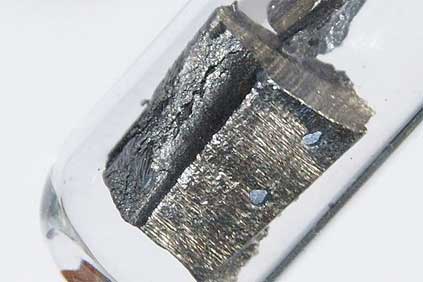Rare-earth metals, such as neodymium, are used in large quantities in permanent-magnet generators (PMG) for next-generation wind turbines. China controls an estimated 97% of the world's processed rare- earth metals and is the leading maker of permanent magnets.
China's monopoly of rare metal exports came under the spotlight recently when David Sandalow, assistant energy secretary for policy and international affairs at the US Department of Energy (DOE), told a US Senate subcommittee that a draft strategy to ensure continued US access to rare metals will be issued this autumn.
In response to reports that China was cutting export quotas, a senior MOC official said the country would continue to supply rare earth metals to the world market. However, it would be examining whether these quantities needed to be reduced in order to ensure sustainability.
The official added that the government would decide on the quota in 2011 after a comprehensive study of output, domestic and international demand.
In order to protect the finite resources and maintain sustainable development, the official said China would continue to apply restrictive measures on the exploitation, production and export of rare earth metals.
On October 15, MOC spokesman Yao Jian said the measures complied with international standards and World Trade Organization rules.
Yao said the restrictions were in also accordance with China's regulations on the rare earth industry and were aimed at protecting the environment.
He explained that, because of sluggish economic development and outdated technology, China's use of rare earth metals had initially suffered from a lack of controls, resulting in environmental damage.
Rare earth metals are widely applied in high-tech fields such as: optics; electronic information; new materials; aviation and aerospace; machine production; new energy; and the nuclear industry.
China, with about 30% of the world's rare earth metal reserves, supplies 95% of such metals globally. Rare earth metals are sold cheaply in China because of ferocious competition among Chinese enterprises.

.png)


.png)










